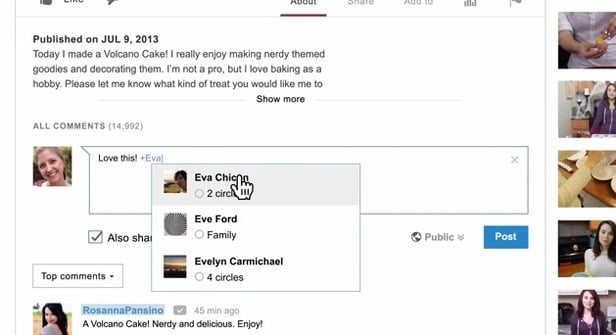YouTube is trying to crack down on bad links, impersonation and ASCII art annoyances, but its changes appeared to be very controversial. The service is trying to fight a new wave of spam, but it sticks with its controversial decision to tie the system to Google+. The company introduced the original changes in early November to make sure that YouTube comments would become conversations that matter to users. YouTube channel owners now have more tools to moderate comments and block certain keywords.
Within the last months, creators have loudly complained that the recent changes have fuelled a new wave of spam. Some of them even turned off their comments after facing lots of links to virus websites, advertisers, self-advertisers and spam. The company is aware of the problems, admitting that the new rules introduce new opportunities for abuse and lots of users take advantage of them.
YouTube had to roll out updates. They included better recognition of bad links and impersonation attempts. The company also changed how long comments can be displayed for, and improved ASCII art detection.
YouTube knows that initially the spam problem made it very hard to use the new system, but the company is glad to see more of people getting involved as it has fixed the troubles. New tools, including threaded conversations and formatted comments, were added thanks to the service users. The company also promised to add extra tools to allow channel owners to bulk-moderate their comments.
YouTube

However, one controversial point remains – the deeper integration of YouTube and Google+. Even the site’s own co-founder Jawed Karim has already complained on his channel that now he for some reason needs a Google+ account to comment on a video.
A Change.org petition has been signed to demand that streaming service stop forcing its members to create Google+ accounts to add comments. The petition has so far gathered over 200,000 signatures, and there is lots of anger about this particular change. The industry observers believe that this may well flare up again at the sight of YouTube dealing with spam problems without addressing (or even acknowledging) the arguments around its social network.


















